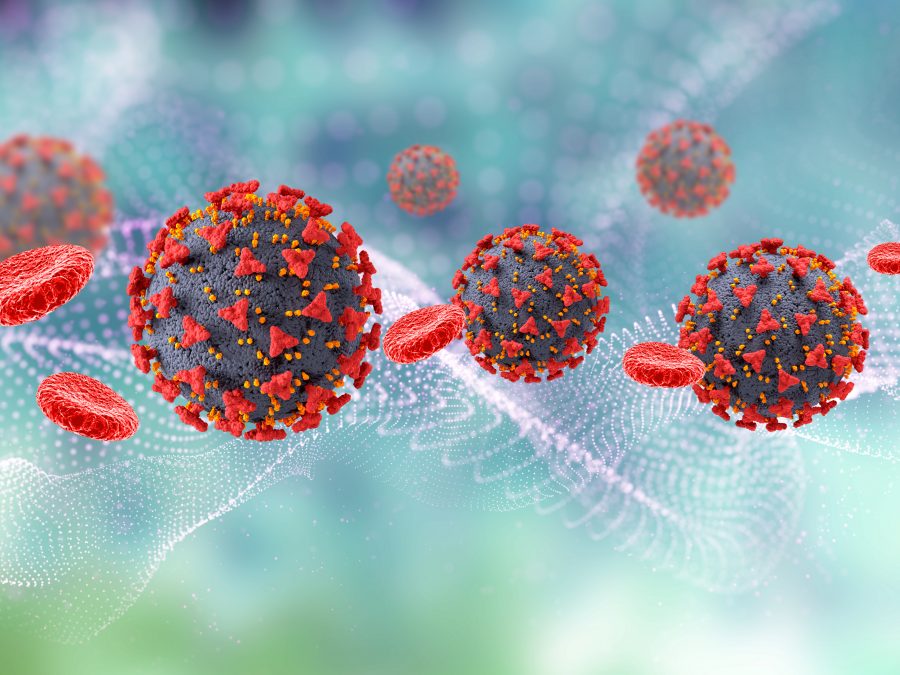Programme 1
AI-Enhanced Global and Personal Health Protection

This programme aims to integrate artificial intelligence (AI) with state-of-the-art biotechnology and digital influencer platforms to address two major threats to global health: vaccine hesitancy, and highly infectious pathogens such as pandemic influenza and Ebola. Both were identified as being among the 10 top global health threats by the World Health Organization in 2019. Researchers will develop and implement innovative AI solutions to alleviate the health and economic burden posed by vaccine hesitancy and high-threat infectious pathogens, nationally and around the world.
The expected academic and translational or commercial outputs include but are not limited to extension of the international Vaccine Confidence Project (a project led by our collaborator – the London School of Hygiene and Tropical Medicine in response to hesitancy and misinformation on vaccination programmes) to provide authoritative vaccine information to low- and middle-income countries.
Scientific Leadership
-

Professor Joseph Wu
Lead Scientist

Professor Joseph Wu
Managing Director and Lead Scientist (Programme 1)
Laboratory of Data Discovery for Health
Email: joewu@d24h.hk / joewu@hku.hkProfessor Joseph Wu is the Managing Director of the Laboratory of Data Discovery for Health (D24H), and Sir Robert Kotewall Professor in Public Health at the School of Public Health of the LKS Faculty of Medicine of the University of Hong Kong. Professor Wu specialises in mathematical and statistical modelling of diseases. His research aims are: (i) to develop practical analytics and strategies for disease control and prevention; and (ii) to translate his research into policies and practice. He has worked on COVID-19, seasonal and pandemic influenza, hand-foot-and-mouth diseases, HPV, MERS, yellow fever, cervical cancer, colorectal cancer and breast cancer. He earned his PhD (Operations Research) and BS (Chemical Engineering) from MIT.
Professor Wu is the director of: (i) HKU’s first Massive Open Online Courseware (MOOC) Epidemics which has had more than 50,000 people enrolled since its first launch in 2014; and (ii) the Croucher Summer Course Vaccinology for Public Health and Clinical Practice in the 21st Century.
He is also co-editor-in-chief of Epidemics; an associate editor of PLOS Computational Biology and PLOS Neglected Tropical Diseases; a member of the WHO Advisory Committee on Immunisation and Vaccines-related Implementation Research (IVIR-AC); a member of the MIT SOLVE Challenge Leadership Group; an SME advisor of MIT HK Innovation Node; and a Fellow of the UK Faculty of Public Health.
READ MORE -

Dr Alexander Ng
Co-Investigator
Vice President, Tencent Healthcare
Dr Alexander Ng
Co-Investigator (Programme 1)
Vice President, Tencent HealthcareDr Ng is the Co-Investigator of the programme “AI-Enhanced Global and Personal Health Protection” (Programme 1) at the Laboratory of Data Discovery for Health.
He is the Vice President of Tencent Healthcare and is currently leading Tencent’s healthcare business. He first started his career as a medical doctor where he was the chief resident at Middlemore Hospital in Auckland, New Zealand. He then moved to the US to become a strategy consultant with McKinsey & Company where he co-led the Greater China Healthcare Practice. He then joined the Gates Foundation as the deputy director of the China Country Office, responsible for the health and innovation portfolio.
He is also serving as an advisor to WHO’s Digital Health Technical Advisory Group, and an honorary associate professor at the University of Hong Kong’s Faculty of Medicine.
-
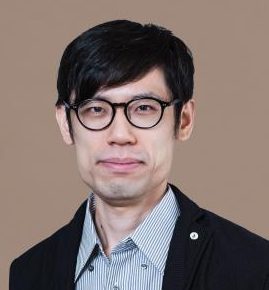
Dr Carlos Wong
Senior Research Director

Dr Carlos Wong
Senior Research Director (Programme 1) and Co-Principal Investigator (Programme 4)
Laboratory of Data Discovery for Health
Email: carloswong@d24h.hkDr Wong is the Senior Research Director of the programme “AI-Enhanced Global and Personal Health Protection” (Programme 1), and the Co-Principal Investigator of the programme “AI and Pharmaceuticals in Non-Communicable Diseases (NCDs)” (Programme 4) at the Laboratory of Data Discovery for Health. He is an Honorary Assistant Professor of the University of Hong Kong.
He is a member of the Vaccine Confidence Project, the London School of Hygiene & Tropical Medicine. He received PhD from Department of Family Medicine and Primary Care, the University of Hong Kong. Prior to his PhD, he graduated with Bachelor and MPhil degrees from Department of Mathematics at Hong Kong University of Science and Technology.
His current research interests are pharmacoepidemiology, and health services research, particularly retrospective administrative database research and cost-effectiveness analysis of health care interventions. He has published more than 250 articles in peer-reviewed journals including The Lancet, Nature Medicine, The Lancet Infectious Diseases, Annals of Internal Medicine, Journal of Hepatology, Diabetes Care, Clinical Infectious Diseases, EClinicalMedicine, PLOS Medicine, BMC Medicine, Annals of Surgery, etc. He is appointed as member of editorial board of journal Primary Care Diabetes, and statistical advisor of Hong Kong Medical Journal. He was awarded the Glasgow / HKU early career mobility fund to be visiting researcher at Health Economics and Health Technology Assessment (HEHTA), University of Glasgow in 2016, and was awarded the HMRF Research Fellowship in 2017 to be academic visitor at Health Economics Research Centre, University of Oxford in 2019.
-
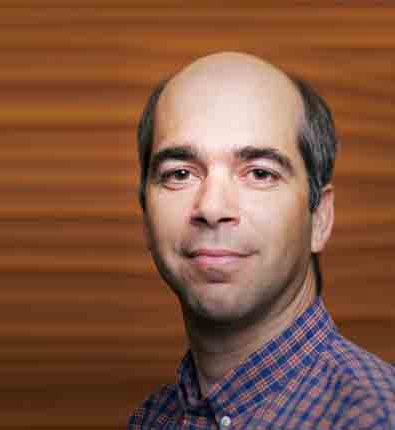
Dr Elad Yom-Tov
Co-Investigator
Senior Principal Researcher, Microsoft Research Israel
Dr Elad Yom-Tov
Co-Investigator (Programme 1)
Senior Principal Researcher, Microsoft Research IsraelDr Yom-Tov is the Co-Investigator of the programme “AI-Enhanced Global and Personal Health Protection” (Programme 1) at the Laboratory of Data Discovery for Health.
He is currently the Senior Principal Researcher at Microsoft Research Israel. Before joining Microsoft, he worked with Yahoo Research, IBM Research (where he held the title of Master Inventor), and Rafael. His primary research interests are in applications of information retrieval, large-scale machine learning, and social analysis to health and medicine.
-
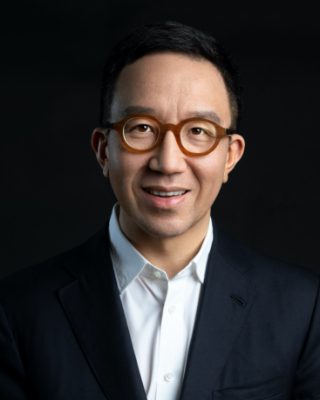
Professor Gabriel M. Leung
Co-Principal Investigator

Professor Gabriel M. Leung
Chief Scientific Officer Emeritus
Laboratory of Data Discovery for HealthOne of Asia’s most respected higher education, health and philanthropic leaders, Professor Gabriel Leung is known for his commitment to improving human capabilities, nurturing impactful innovation and building strong institutions. He is the Executive Director (Charities and Community) of the Hong Kong Jockey Club, overseeing its Charities Trust, while serving as a Governor of The Wellcome Trust – both of which are ranked amongst the top ten philanthropies globally. Professor Leung is also the Chief Scientific Officer Emeritus of the Laboratory of Data Discovery for Health (D24H), and the Honorary Clinical Professor at the School of Public Health, LKS Faculty of Medicine at the University of Hong Kong.
His career has straddled academe, public service, and philanthropy. From 2013 to 2022, he was the longest-serving Dean of Medicine and the inaugural Helen and Francis Zimmern Professor in Population Health at the University of Hong Kong. Formerly, he was Hong Kong’s first Under Secretary for Food and Health and the fifth Director of the Chief Executive’s Office in government.
A specialist in public health medicine by training, Professor Leung is a leading epidemiologist and global health exponent. His work has revolved around topics that have major population health impact locally, where Hong Kong is a reliable and unique epidemiologic sentinel for mainland China and the Chinese diaspora, or where it is best placed to address the fundamental science at hand globally.
Professor Leung’s research defined the epidemiology of three novel viral epidemics, namely SARS in 2003, H7N9 influenza in 2013 and most recently COVID-19. As minister, he led Hong Kong government’s response against the 2009 influenza pandemic. He was the founding co-director of HKU’s World Health Organization (WHO) Collaborating Centre for Infectious Disease Epidemiology and Control and founded the D24H at the Hong Kong Science and Technology Park.
In parallel, Professor Leung led several large-scale longitudinal cohorts (Children of 1997, FAMILY, Department of Health Elderly Health Service cohort), tracking tens of thousands of lives to study the fundamental causes of non-communicable conditions and to explain the health impacts of contemporary social phenomena.
A final strand of his scholarly work concerned the economics and policy issues of health systems. His team was the government’s health accountant and projected health care human resources needs. Regionally, Professor Leung has tirelessly worked to build capacity throughout the Asia Pacific. He served as founding Chair of the Asia Pacific Observatory on Health Systems Policies and continues to lead its Strategic Technical Advisory Committee.
Around the world, Professor Leung regularly advises national and international agencies, including the World Health Organisation, World Bank, Asian Development Bank, Boao Forum for Asia, Institut Pasteur, Japan Center for International Exchange, National Centre for Infectious Diseases of Singapore and China Centers for Disease Control and Prevention. He is an Adjunct Professor of Peking Union Medical College Hospital and Adjunct Professorial Researcher of the China National Health Development Research Center.
Locally, he was Vice President and Censor in Public Health Medicine of the Hong Kong College of Community Medicine, and an elected council member of the Hong Kong Academy of Medicine. He was a member of the Hospital Authority and completed two terms on the University Grants Committee, which are respectively a statutory agency responsible for all public health care services and a government advisory body on the development and funding requirements of the higher education sector.
He co-edited the Journal of Public Health, was inaugural co-editor of Epidemics, associate editor of Health Policy and is founding deputy editor-in-chief of China CDC Weekly. He currently serves on the editorial boards of ten journals, including the British Medical Journal.
After reading medicine at the University of Western Ontario, Professor Leung completed family medicine residency training in Toronto. He earned a master’s from Harvard University and research doctorate from HKU.
He is an elected member of the US National Academy of Medicine and was awarded the Gold Bauhinia Star (second highest civilian honour) by the Hong Kong government for distinguished service in protecting and promoting population health.
READ MORE -

Professor Heidi Larson
Co-Principal Investigator
Professor of Anthropology, Risk and Decision Science, London School of Hygiene and Tropical Medicine
Professor Heidi Larson
Co-Principal Investigator (Programme 1)
Professor of Anthropology, Risk and Decision Science; Director of The Vaccine Confidence Project (VCP), London School of Hygiene and Tropical Medicine
Email: Heidi.Larson@LSHTM.ac.ukProfessor Larson is the Co-Principal Investigator of the programme “AI-Enhanced Global and Personal Health Protection” (Programme 1) at the Laboratory of Data Discovery for Health.
She is a Professor of Anthropology, Risk and Decision Science and is the Founding Director of the Vaccine Confidence Project at the London School of Hygiene & Tropical Medicine. She is also s Clinical Professor of Health Metrics Sciences, University of Washington, Seattle, USA, and a Guest Professor at the University of Antwerp, Belgium. Her research focuses on the analysis of social and political factors that can affect uptake of health interventions and influence policies. Her particular interest is on risk and rumour management from clinical trials to delivery, and building public trust.
READ MORE -
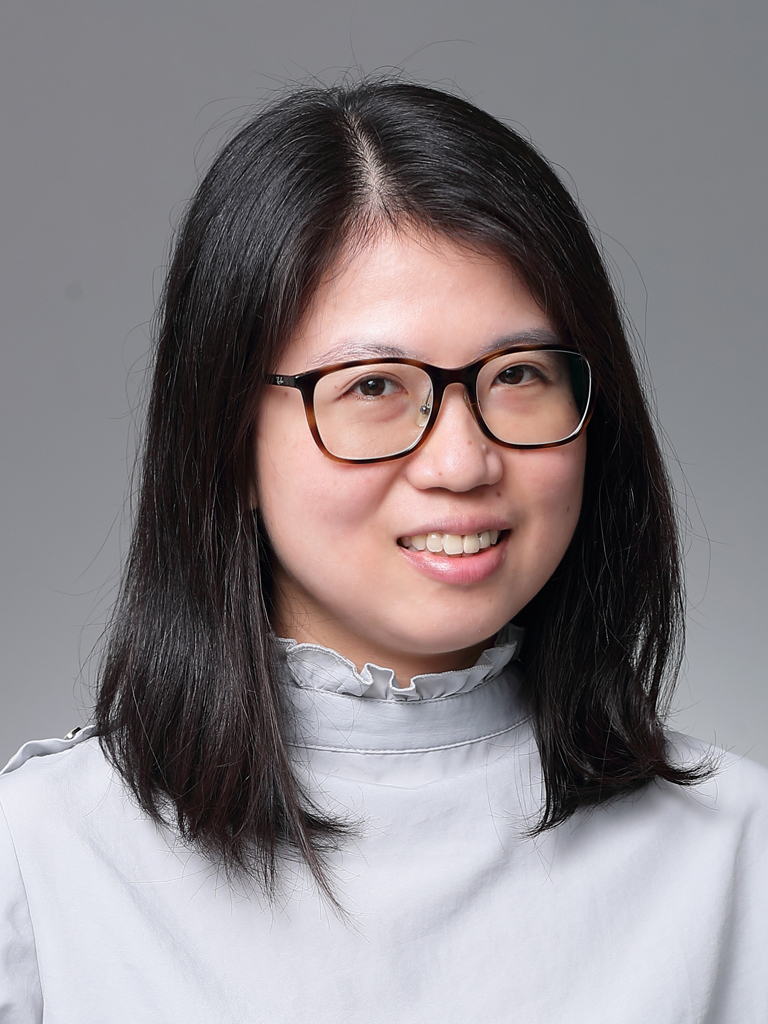
Professor Kathy Leung
Co-Investigator
Assistant Professor, Division of Epidemiology and Biostatistics, School of Public Health, The University of Hong Kong
Professor Kathy Leung
Co-Investigator (Programme 1)
Assistant Professor, Division of Epidemiology and Biostatistics, School of Public Health, The University of Hong Kong
Email: ksmleung@hku.hkProfessor Leung is the Co-Investigator of the programme “AI-Enhanced Global and Personal Health Protection” (Programme 1) at the Laboratory of Data Discovery for Health.
Professor Leung is an Assistant Professor in the Division of Epidemiology and Biostatistics, School of Public Health at the University of Hong Kong (HKU). In recent years, her primary research is in mathematical modelling of a wide range of communicable and non-communicable diseases, such as influenza, MERS, hand-foot-and-mouth disease, HPV, cervical cancer, colorectal cancer and breast cancer.
She also conducts epidemiological and economic evaluations of intervention strategies against communicable and non-communicable diseases, such as HFMD vaccination and breast cancer screening programmes. She was the core developer of HKU’s first Massive Open Online Course (MOOC) Epidemics.
READ MORE -

Dr Leesa Lin
Senior Research Director
Honorary Associate Professor, School of Public Health, The University of Hong Kong
Dr Leesa Lin
Senior Research Director (Programme 1)
Honorary Associate Professor, School of Public Health, The University of Hong Kong
Email: llin@d24h.hkDr Leesa Lin is the Senior Research Director of the programme “AI-Enhanced Global and Personal Health Protection” (Programme 1) at the Laboratory of Data Discovery for Health. She is an Honorary Associate Professor of School of Public Health, The University of Hong Kong.
Dr Lin is the Risk Communication and Implementation Science Lead as well as the Asia lead at the Vaccine Confidence Project™. She is a communication and behavioural scientist whose research has centred around the assessment of public health systems’ emergency preparedness, emergency risk communications, global health security, and development and implementation of behavioural change interventions. Dr Lin applies a mixed-methods approach in her research and evaluation activities. A primary focus of her work has been to identify challenges, inequalities, and resilience experienced by at-risk and disadvantaged populations, as well as social and behavioural interventions to improve preparedness outcomes during large-scale public health emergencies such as the 2008 Wenchuan earthquake, 2009/2010 H1N1 pandemic, 2010 Boston Water Crisis, 2013 MERS outbreaks, and the current COVID-19 pandemic.
Dr Lin’s current research focuses on social science response to epidemic outbreaks, vaccine confidence, community preparedness, child health and development, mental health, and antibiotic resistance (AMR). She is currently serving as an expert in the Social Science Research Working Group for the WHO Blueprint for 2019 novel Coronavirus Global R&D Preparedness and for the COVID-19 Clinical Research Coalition.
Knowledge generated from her research has been translated into guidelines and programmes. Dr Lin has an extensive background in knowledge translation and dissemination. In addition to conference presentations and journal publications, Dr Lin has worked on the development of case studies, executive education, workshops and seminars, programme evaluation reports and evaluation tools, and training products for knowledge users.
Dr Lin holds a PhD in Implementation Science, Behavioural and Decision Sciences, and Social Epidemiology from LSHTM (United Kingdom), a ScM in Global Health and Population from the Harvard School of Public Health (United States), and a BA in Psychology and Asian Studies from the University of British Columbia (Canada).
-

Professor Mark Jit
Co-Investigator
Chair and Professor of the Dept. of Global and Environmental Health, NYU School of Global Public Health
Honorary Professor, Dept. of Infectious Disease Epidemiology & Dynamics, LSHTM
Visiting Professor, HKU School of Public Health
Professor Mark Jit
Co-Investigator (Programme 1 & 4)
Chair and Professor of the Department of Global and Environmental Health, School of Global Public Health, New York University
Honorary Professor, Department of Infectious Disease Epidemiology & Dynamics, London School of Hygiene & Tropical Medicine
Visiting Professor, School of Public Health, The University of Hong Kong
Email: kmj7983@nyu.eduProfessor Jit is the Co-Investigator of the two programmes namely “AI-Enhanced Global and Personal Health Protection” (Programme 1) and “AI and Pharmaceuticals in Non-Communicable Diseases (NCDs)” (Programme 4) at the Laboratory of Data Discovery for Health.
Professor Jit is the inaugural chair and a professor in the Department of Global and Environmental Health, School of Global Public Health at New York University. He was formerly head of the Department of Infectious Disease Epidemiology & Dynamics and co-director of the Global Health Economics Centre (GHECO) at the London School of Hygiene & Tropical Medicine (LSHTM). He holds honorary appointments at LSHTM as well as the University of Hong Kong (HKU) and the National University of Singapore (NUS).
His research focuses on epidemiological and economic modeling of vaccines to support evidence-based public health decision making. He has published papers covering a range of vaccine-preventable or potentially vaccine-preventable diseases including COVID-19, measles, HPV, pneumococcus, rotavirus, influenza, Group B Streptococcus, dengue, EV71 and RSV as well as methodological papers advancing the ways vaccines are evaluated. This work has influenced many of the major changes to immunization policy in countries around the world. Dr. Jit has served on a number of expert advisory committees in the UK as well as for international organizations such as the World Health Organization. He also organises or contributes to academic and professional courses on vaccine modeling, economics and decision science around the world.
He received his BSc and PhD in Mathematics from University College London, specializing in mathematical biology, and a Master of Public Health degree from King’s College London.
READ MORE -
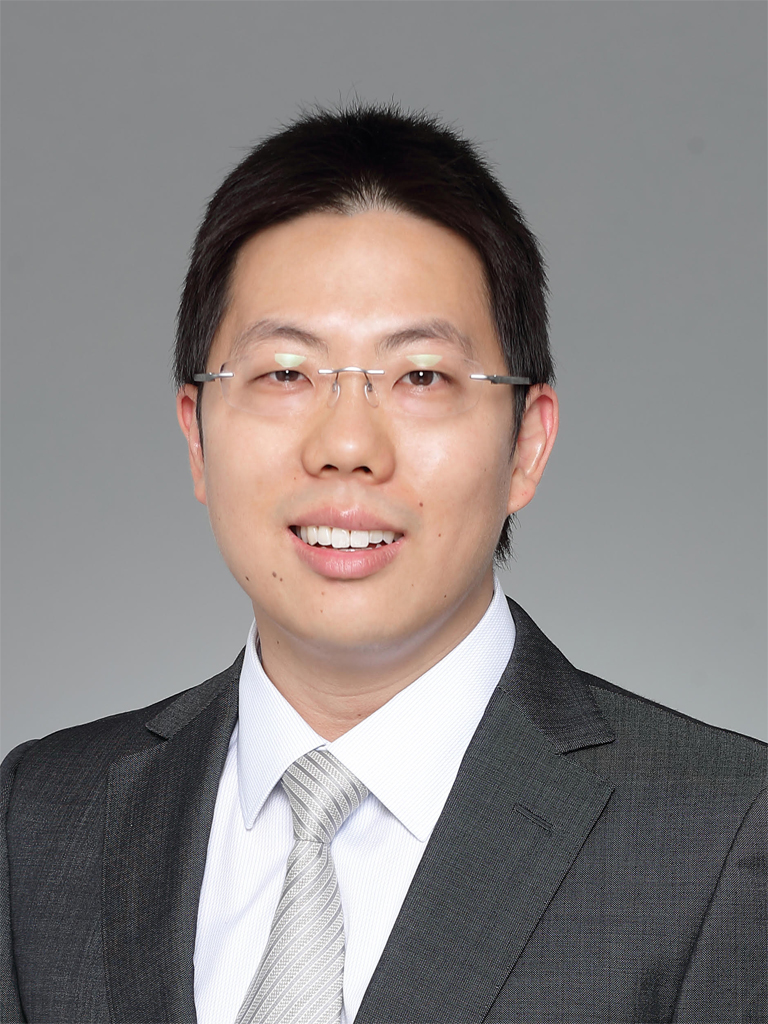
Professor Michael Ni
Co-Investigator
Clinical Associate Professor, Division of Community Medicine and Public Health Practice, School of Public Health, The University of Hong Kong
Professor Michael Ni
Co-Investigator (Programme 1)
Clinical Associate Professor, Division of Community Medicine and Public Health Practice, School of Public Health, The University of Hong Kong
Email: nimy@hku.hkProfessor Ni is the Co-Investigator of the programme “AI-Enhanced Global and Personal Health Protection” (Programme 1) at the Laboratory of Data Discovery for Health.
He is a Clinical Associate Professor in the Division of Community Medicine and Public Health Practice, School of Public Health at the University of Hong Kong. He is a specialist in public health medicine and has been conferred Fellowships by the Hong Kong Academy of Medicine (Community Medicine), Hong Kong College of Community Medicine, and the United Kingdom’s Faculty of Public Health, and Membership of the Royal College of Physicians.
As a public health physician, his interdisciplinary research spans across different fields while maintaining a focus on population mental health. His primary area of research is in psychiatric epidemiology, and revolves around prevailing and emerging determinants of mental health.
READ MORE -

Dr Pauline Paterson
Co-Investigator
Assistant Professor, Department of Infectious Disease Epidemiology, London School of Hygiene and Tropical Medicine
Dr Pauline Paterson
Co-Investigator (Programme 1)
Assistant Professor, Department of Infectious Disease Epidemiology; Co-director of The Vaccine Confidence Project (VCR), London School of Hygiene and Tropical Medicine
Email: Pauline.Paterson@lshtm.ac.ukDr Paterson is the Co-Investigator of the programme “AI-Enhanced Global and Personal Health Protection” (Programme 1) at the Laboratory of Data Discovery for Health.
She is an Assistant Professor in the Department of Infectious Disease Epidemiology and Co-director of The Vaccine Confidence Project (VCR) at the London School of Hygiene and Tropical Medicine. She has been researching issues of public confidence in immunisations since 2010. Her specific research activities include qualitative analysis of parental reasons for not vaccinating their child with influenza vaccine in England, analysis of concerns surrounding HPV vaccine in India and Japan, and a systematic review on public trust in vaccination.
READ MORE -
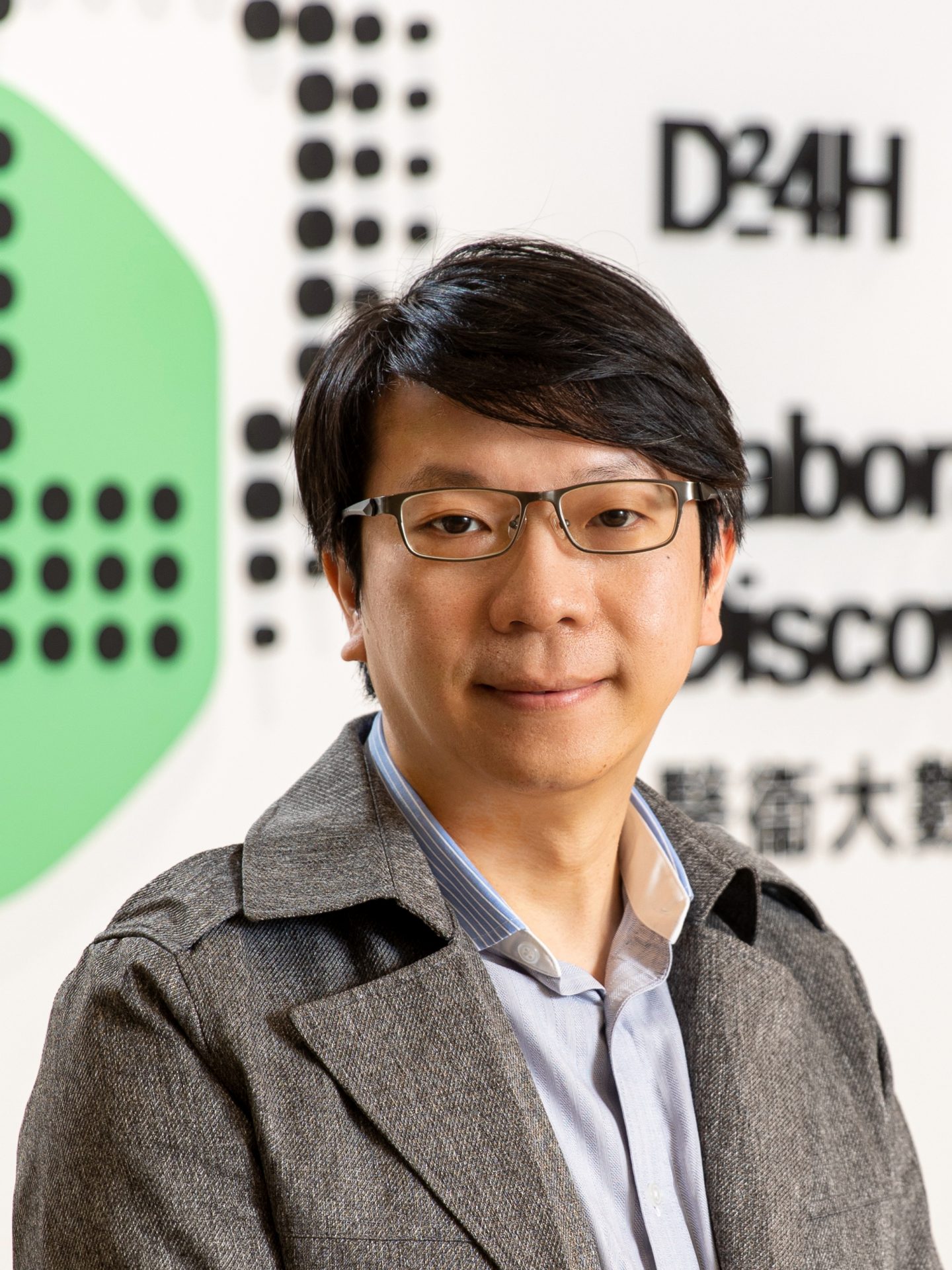
Professor Tommy Lam
Co-Investigator

Professor Tommy Lam
Lead Scientist (Programme 2)
Laboratory of Data Discovery for Health
Email: ttylam@d24h.hk / ttylam@hku.hkProfessor Lam is an Associate Professor of Division of Public Health Laboratory Sciences, School of Public Health at the University of Hong Kong, and currently leads the programme “AI-Metagenomic Platform to Identify Emerging Pathogens” (Programme 2) at the Laboratory of Data Discovery for Health.
His main research interest is the evolution, epidemiology and ecology of infectious diseases. He uses integrative genomic approach to determine the patterns, drivers and mechanisms of the emergence of pathogens at human-animal interface including influenza viruses and coronaviruses, as well as some bacterial pathogens and their antibiotic resistance emergence.
His research has contributed to important understanding of the origins, evolution and transmission of newly emerging pathogens such as H7N9 influenza (Nature 2013, Nature 2015), MERS coronavirus (EID2013, Science 2016) and COVID-19 coronavirus (Nature 2020). He is also leading the development of several computational methods and tools for the genomic analysis in the research community.
READ MORE
Other Project Members
-
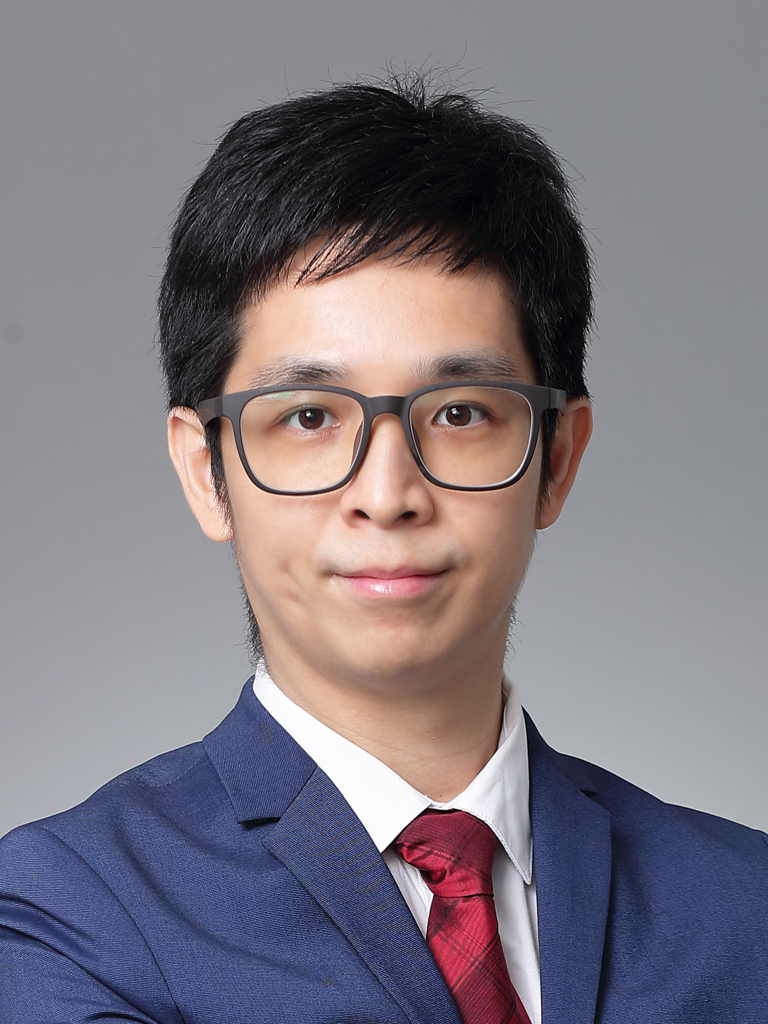
Dr Horace Choi
Honorary Research Assistant Professor
Research Assistant Professor, Division of Epidemiology and Biostatistics, School of Public Health, The University of Hong Kong
Dr Horace Choi
Honorary Research Assistant Professor (Programme 1)
Research Assistant Professor, Division of Epidemiology and Biostatistics, School of Public Health, The University of Hong Kong
Email: hcchoi@d24h.hkDr Horace Choi obtained his PhD from the School of Public Health at The University of Hong Kong. His research interests cover health economics, infectious diseases modelling, effectiveness of cancer treatments and cancer epidemiology. He worked intensively on modelling the infection of human papillomavirus (HPV) and its development to cervical cancer using a dynamic transmission model between females and males. The outcomes linked to the cost-effectiveness analysis (CEA) of HPV vaccination and cervical screening for females in Hong Kong. Dr Choi also conducted various cancer research analyses, with particular foci on nasopharyngeal and gastrointestinal cancers, including multi-center clinical trials, CEAs of targeted therapy and immunotherapy, quality-of-life studies and network meta-analyses.
READ MORE -

Professor Qingpeng Zhang
Honorary Scientific Advisor
Associate Professor, HKU Musketeers Foundation Institute of Data Science and Department of Pharmacology and Pharmacy, The University of Hong Kong
Professor Qingpeng Zhang
Honorary Scientific Advisor (Programme 1)
Associate Professor, HKU Musketeers Foundation Institute of Data Science and Department of Pharmacology and Pharmacy, The University of Hong Kong
Email: qpzhang@hku.hkProfessor Qingpeng Zhang is an Associate Professor in the Musketeers Foundation Institute of Data Science and the Department of Pharmacology and Pharmacy at The University of Hong Kong (HKU). He received the B.S. degree in Automation from Huazhong University of Science and Technology in 2009, and the M.S. and the Ph.D. degrees in Systems and Industrial Engineering (minor in Management Information Systems) from the University of Arizona, in 2011 and 2012, respectively. Prior to joining HKU in 08/2023, he was an Associate Professor with the School of Data Science at The City University of Hong Kong (CityU). He previously worked as a Postdoctoral Research Associate in the Tetherless World Constellation, Department of Computer Science at Rensselaer Polytechnic Institute.
Professor Zhang is a senior member of IEEE, and an associate/academic editor for IEEE TITS, IEEE TCSS, Journal of Alzheimer’s Disease (2021), and PLoS ONE. He was a theme issue editor for Philosophical Transactions of the Royal Society A: Mathematical and Engineering Sciences and the guest editor for a number of other journals. He is on the executive committee of the International Society of Digital Health, Hong Kong Society of Behavior Health, Systems Engineering Society of China, and the Hospital IoT Branch of China Association of Medical Equipment.
His research interests include medical informatics, AI in drug discovery, healthcare data analytics and network science. His research has been published in leading journals such as Nature Human Behaviour, Nature Communications and MIS Quarterly, as well as featured in press such as The Washington Post, The New York Times, New York Public Radio, The Guardian and Ming Pao. He received The President’s Award (2022) and the Outstanding Research Award for Junior Faculty (2021) from CityU and the Andrew P. Sage Best Transactions Paper Award (2021) from IEEE Systems, Man, and Cybernetics Society.
READ MORE
Projects
Persistence of poliovirus antibodies following primary series with and without a 5th IPV booster dose at school-entry age in Hong Kong
This research project aims to measure seroprotection against poliovirus infection among Hong Kong children aged 1.5-10.5 years old. Participants who have received DTaP-IPV vaccine according to the Hong Kong Childhood Immunisation Programme are eligible. During the study, participants will be required to provide 15 mL blood sample for antibody testing, and complete a survey by their parent/guardian. Upon completing blood collection and survey, each participant will be awarded a supermarket coupon with a face value of HK$1,000 as acknowledgement for the support towards the project.
More details: https://www.poliostudy.sph.hku.hk/
Impact of a conversational AI service (chatbot) on COVID-19 vaccine confidence and uptake
The primary objective of this project is to develop and evaluate a conversational AI service (chatbot) on popular communication platforms as an AI-interface for users to obtain accurate and personalised vaccine information and to assess the veracity of vaccine information in East/Southeast Asia particularly Hong Kong, Singapore, and Bangkok.
More details: https://vaccineconfidencefund.org/vcf-grants-awarded/
Featured Publications
-
- Journal of Cachexia, Sarcopenia and Muscle
29 Oct 2024
-
Comparing role of religion in perception of the COVID-19 vaccines in Africa and Asia Pacific
- Communications Medicine24 Oct 2024
-
- Pharmacoepidemiology and Drug Safety
17 Oct 2024
-
- Studies in Health Technology and Informatics
22 Aug 2024
-
- JMIR Public Health and Surveillance
13 Aug 2024
-
- JMIR Public Health and Surveillance
17 Jun 2024
-
- Nature Communications
08 Jun 2024
-
Increased incidence of invasive pneumococcal disease in Hong Kong in 2023
- Journal of Infection11 May 2024
-
15 Mar 2024
-
- Human Vaccines & Immunotherapeutics
18 Feb 2024
-
- JMIR Public Health and Surveillance
12 Feb 2024
-
COVID-19 vaccine acceptance and its associated factors in the Western Pacific Region
- The Lancet Regional Health - Western Pacific12 Feb 2024
-
18 Jan 2024
-
16 Jan 2024
-
- Nature Communications
16 Dec 2023
-
15 Dec 2023
-
- Health Affairs
01 Dec 2023
-
15 Nov 2023
-
- Nature Medicine
01 Nov 2023
-
Navigating a rapidly changing information and communication landscape amidst “infodemics”
- Modernizing Global Health Security to Prevent, Detect, and Respond20 Oct 2023
-
- Journal of Gynecologic Oncology
18 Oct 2023
-
Cost-effectiveness of seasonal influenza vaccination of children in China: a modeling analysis
- Infectious Diseases of Poverty11 Oct 2023
-
Conversational AI and Vaccine Communication: Systematic Review of the Evidence
- Journal of Medical Internet Research03 Oct 2023
-
19 Sep 2023
-
- Cogent Public Health
06 Sep 2023
-
09 Aug 2023
-
Recent trends in vaccine coverage and confidence: A cause for concern
- Human Vaccines & Immunotherapeutics01 Aug 2023
-
- npj Digital Medicine
25 May 2023
-
- The Lancet Planetary Health
01 Apr 2023
-
- JMIR Public Health and Surveillance
09 Mar 2023
-
Battle of Polio eradication in the Western Pacific Region in the transition to COVID-19 endemicity
- Journal of Infection21 Feb 2023
-
- The Lancet Infectious Diseases
13 Feb 2023
-
10 Feb 2023
-
The emerging antimicrobial resistance crisis during the COVID-19 surge in China
- The Lancet Microbe10 Feb 2023
-
Applications of Social Media and Digital Technologies in COVID-19 Vaccination: Scoping Review
- Journal of Medical Internet Research10 Feb 2023
-
- Nature Medicine
18 Jan 2023
-
- Nature Medicine
13 Jan 2023
-
- The Lancet Infectious Diseases
24 Aug 2022
-
- Scientific Reports
28 Jul 2022
-
Vaccines and the social amplification of risk
- Risk Analysis14 May 2022
-
- JMIR Public Health and Surveillance
13 May 2022
-
Nonbiomedical factors affecting antibiotic use in the community: authors' response
- Clinical Microbiology and Infection09 Mar 2022
-
- One Health
28 Feb 2022
-
- The Lancet Regional Health, Western Pacific
02 Feb 2022
-
- The Lancet Regional Health Western Pacific
01 Feb 2022
-
28 Jan 2022
-
- Nature Medicine
20 Jan 2022
-
- Eurosurveillance
13 Jan 2022
-
- Eurosurveillance
09 Dec 2021
-
- Expert Review of Vaccines
26 Nov 2021
-
A global assessment of the impact of school closure in reducing COVID-19 spread
- Philosophical Transactions of the Royal Society A: Mathematical, Physical and Engineering Sciences22 Nov 2021
-
- Clinical Microbiology and Infection
09 Nov 2021
-
26 Aug 2021
-
- JMIR Infodemiology
22 Aug 2021
-
- The Lancet Public Health
10 Aug 2021
-
- Human Vaccines & Immunotherapeutics
06 Aug 2021
-
- Journal of Affective Disorders
29 Jul 2021
-
- Preventive Medicine
22 Jun 2021
-
- Journal of Medical Internet Research
11 Jun 2021
-
Using risk stratification to optimize mammography screening in Chinese women
- JNCI Cancer Spectrum07 Jun 2021
-
18 Mar 2021
-
- Nature Medicine
15 Mar 2021
-
- Nature Communications
08 Mar 2021
-
Quantifying the uncertainty of CovidSim
- Nature Computational Science22 Feb 2021
-
- Journal of Clinical Microbiology
21 Jan 2021
-
- Eurosurveillance
07 Jan 2021


